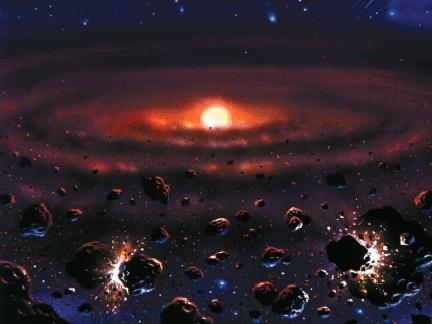Keeping the Solar System in Balance
Even though none of the theories of solar system formation actually work, cosmologists tend to favor the nebular hypothesis, where everything formed from the same hot gas. It swirled, the sun and planets formed — and questions are raised. One of the most obvious problems is the way some of the planets act: Uranus is tipped on its side, effectively rolling in its orbit, and Venus has a retrograde rotation (goes in the opposite direction as the other planets). There are more problems and questions, but the public is given the sanitized version that sounds true, even though there's no evidence for cosmic evolution. Recent discoveries are mighty unfriendly to the concept.
Studies of other solar systems get cosmologists and astronomers a mite consternated, since things they've found are way out of whack and not conducive to life. Our solar system has a right friendly sun, the moon is unique in relation to the Earth and sun unlike other moons, plus the whole shootin' match is kept in balance. Why did God create those gas giants way, way out there? They actually help.
 |
| Solar nebula image credit: NASA (usage does not imply endorsement of site contents) |
For decades it has been somewhat of a mystery to secularists as to why our solar system is structured the way it is: the four gas giants—Saturn and Jupiter, composed mainly of helium and hydrogen, and Uranus and Neptune—orbiting far away from the sun, and the four smaller rocky planets, the terrestrials—Mercury, Venus, Earth, and Mars—orbiting much closer to the sun.To read the rest, click on "The Perfect Balance of Our Solar System".
Astronomers are puzzled that other recently discovered planetary systems look so different from ours. One evolutionist stated, “There are so many surprises in this field—almost nothing is turning out as we expected.” Indeed, for the secular astronomer, basic planet construction is caught on the horns of a dilemma.